Charles Pakana (Victorian Aboriginal News):
Joining me today on the podcast is Wuthathi and Meriam man, John Paul Janke, known affectionately as JP. He’s the co-host of the Point on SBS NITV, and a highly regarded and respected journalist and commentator on National Aboriginal and Torres Strait Islander matters.
JP, thanks for taking the time to come to the program today.
John Paul Janke (JP):
Oh, look, really great to have the opportunity to have a great chat. Always been a great fan of your podcast and love hearing all the great interviews that you’ve been doing over many months.
Charles:
Oh, maybe we should just stop it there. And I should use this promo piece, JP. But-
JP:
I’m lucky. I’m actually lucky to be on. You’ve had a stunning list of interviewees, it’s an honor to be on.
Charles:
Oh, we’ve been chasing you down, but actually we’ll get onto chasing down guests because we know you’ve had some frustrations. We’ll get onto that in a couple of minutes.
But the first thing is, it seems that with the referendum, you, your co-host Narelda, and the entire team have been on a bit of a road trip up with the mob at Garma, Bruny Island, Cummeragunja, just to name a few locations. So why the road trip in the lead up to the referendum and the coverage of the referendum rather than simply from the comfort of the studios flying the relevant people in?
JP:
Yeah, absolutely. It’s been a hectic season for The Point we estimated that we’ve traveled some 36,000 kilometers in getting out to our community show. So at the very start of the year, our network made a commitment to every two weeks to be out in a community show, and then the following week we were back in the studio. So it’s been an epic commitment traveling, as I said, over 36,000 kilometers. And really the essence of that commitment is that in a very important year for Aboriginal and Torres Strait Islander people, and in fact the nation, we need to hear the views, the voices, and the thoughts of Aboriginal and Torres Strait Islander people in their community.
We needed to know how they think the Voice will work for them in their regions, in their communities, on the issues that are unique to them. And other ways also, the issue how the Voice will not work for them. So importantly, as you know, there are differing views in our communities, and importantly, we needed to hear those views, to respond to those views, but also to give those diverse views a platform. And the issues that are faced in the Torres Strait are different to those in Bruny Island, are different to those in Roburn, are different to those in Perth. So we needed to hear what those issues were, and we needed to, I think, amplify those voices to a nation who was saying, well, how is this voice going to work? Or this voice will work because of A, B, and C.
So it’s been a historic commitment. It’s been an epic opportunity for the channel, but I think it’s one that we will look back at the end of the year and say how proud, I think, NITV was in amplifying first Nations voices in a debate, which seems to be taken away their voices.
Charles:
Well, talking about the diversity of opinions and thoughts since the start of the road trip, as you said, you’ve traveled 36,000+ kilometers and you’ve spoken with any number of guests about a vast range of topics. We’ve had native title, racism, sovereignty of course, I think, which was one of the first topics you covered in the series, and the list goes on. So what are some of the legitimate concerns, and this is on either side of the argument that you’ve heard from community about the referendum and the Voice?
JP:
Yeah, look, there are differing views and differing concerns, and those concerns are at different levels too. There are people who have grave concerns about the Voice getting up and not being as effective as they think it should be to those who go, “I’ve got just a few concerns because we haven’t really had the discussion in our communities, but I’m prepared to go with the Voice because there’s better than nothing.” So there’s a whole range of concerns.
On the other side, there are also a whole range of positive aspects for the Voice to those that say, “This will lead to some change.” To those going, “This is what we’ve been needing for the last two decades since the abolition of the Aboriginal Torres Islander Commission.” And also other national advocacy bodies in the last 20 or so years. So wide range of views, but the overwhelming view for those who want more information on the Voice is they want to say, “Well, how does it actually amplify my voices in the community? How do I get a say on national issues?” And I think that falls into maybe a distrust of governments, and government delivery of programs and governments hearing at all levels.
Charles:
But that’s understandable. I mean, so many programs have been put out by the government for Aboriginal and Torres Strait Islander people, they’re just pulled away the moment’s notice.
JP:
Absolutely. And I think that is where we are 20 years after the abolition of ATSIC, also ATSIC and other advocacy structures get brought into the picture and confusion of the role that they played in service delivery and advocating on a national level, to those on the Yes side are saying this is a step in the right direction. It’s something that has been needed for generations. It’s something we fought for generations. And even if it’s not the best model today, it is a step in the right direction because if it’s in the Constitution, it cannot be a political toy and be abolished at the whim of federal governments when they dislike the advice, or the words, or the voices that Aboriginal and Torres Strait Islander people are saying.
I must say, look, we’ve heard some really great comments throughout the series from some of our speakers, but last week we were in Karratha for our last show and the words of an aboriginal woman from Roburn who’s a broadcaster, she made some great comments, which said, “Even if the Voice is just a crumb, a crumb turns into a slice of bread, which turns into a loaf of bread, which enables me to feed my family.” And she said, “That’s why I support the Voice.” And I think that was really poignant because of all the discussion we’ve had that people saying, “Look, it’s actually something’s got to be better than the status quo.”
Charles:
Yeah.
JP:
And I think that’s the overwhelming comments and that people have been saying the status quo is not working, something needs to change.
Charles:
Let’s talk about journalism now. Let’s bring it into our own backyard, and without naming names, what’s given you concern about some of the reporting styles, and let’s be frank, strategies that you’ve witnessed during the lead up to the referendum. I’d be very upfront on this program I’ve taken to task Andrew Bolt and Peter Credlin from Sky News, not a big fan of that sort of level of commentary. What are some of the things, I said without naming names, that have really given concern to you about journalism during this campaign?
JP:
I think we’ve got to start with an understanding of the media landscape. And there are those media outlets who are deliberately engaging in negative, stereotypical, and sometimes verging on information that is born from racist ideologies, and presenting that as fact. And that is worrying, that is really worrying in a national debate where we’re actually trying to have fact over fear that media outlets are spreading fear over fact, and I think that’s dangerous moving forward. I think that the reason why they do that is because conflict sells papers. It gets people watching and it creates hysteria, but also creates interest in your medium or your platform for journalism.
I think sadly, there’s the cycle of how news stories are developed, whereas something that the No campaign can say is quickly turned into a news article, a discussion or debate on certain right wing media or conservative media, and then it feeds back on itself. And that media comment is then quoted again by the No campaign, even if it’s incorrect, even if it’s wrong, even if it’s misleading, it still is in the public forum for discussion and it stays there for a while because no correction is issued, no apology issues, or they don’t come back and discuss it. It just stays there to circulate and permeate through our community, which creates misinformation and disinformation and fear over fact.
I think the challenge also for public broadcasters is to remain neutral. And that is a real challenge because in a debate where some of the comments are actually… they’re wrong, they’re incorrect, and there’s fear over fact. Public broadcasters need to call that out, and they often get called in as being biased if we call that out. So I think that has been a real big challenge for public broadcasters.
Charles:
But do you find it difficult because let’s be frank, everyone’s got skin in the game on this. This referendum is not just strictly about a voice. A lot of people, and I agree with this, see it as this is a referendum about Australia’s identity going forward, and I can’t see really any legitimate argument against that. But I mean, as an Aboriginal man and Torres Strait Islander man, how difficult is it for you, with skin in the game, to actually sit back and try to be as impartial as possible?
JP:
To be honest, it kills me. It absolutely kills me to in some way have to give volume and amplify things that I know are incorrect and just sheer misleading, or see debates online that are just driving hatred and fear. And it’s probably not just me, it’s probably other indigenous public broadcasters as well. It destroys you because as you say, this is a bigger discussion now, not just about constitutional recognition through a voice, but it’s actually a discussion about me, it’s a discussion about you, it’s a discussion about your history where every issue of Aboriginal and Torres Strait Islander life is now being debated to bring a constitutional amendment down. And the challenge is-
Charles:
Some of the antics have been horrific, haven’t they? Thomas has been… The recent things that I saw that really couldn’t believe, and I ended up reaching out to Thomas Mayo yesterday in solidarity. But when Anthony Mundine sort of went to social media and said, “I want to take you into the ring.” And Warren Mundine was very supportive of this, and you think, “Wow, is it really getting to this stage?” Now, I’m not asking you to comment on that particular item, but it really is demonstrative, isn’t it? Just of how nasty this whole flippin’ campaign is getting.
JP:
Charles, it’d be interesting that if Thomas Mayer called out Warren Mundine for a fight, or Marcia Langton called out Senator Price for a fight.
Charles:
Oh, imagine the media repercussions on that one.
JP:
Imagine the media repercussions on that. The opposite has happened and people laugh it off.
Charles:
Yeah.
JP:
And I think that it has rightly been dismissed as probably one of the craziest moments of this campaign, which has had lots of crazy moments, and this takes the cake. But I think calling out the challenge for a fist fight in a boxing ring over something that the Yes campaign is saying improves the lives of Aboriginal and Torres Strait people, and you want to fight the bloke?
Charles:
Bit tragic, yeah.
JP:
It is crazy. And interestingly enough, the No campaign will not come back and answer that, they will move on. We’ve heard this term in the debate before about flooding the zone.
Charles:
Yeah.
JP:
Which is you create so much noise and misinformation that it confuses the message and the No campaign will keep on doing that in the next two weeks, but they will not go back and talk about issues that they’ve raised, a bushfire started, they’ll move on. We’ll now be talking about that challenge by Anthony Mundine and the No campaign will have moved on, but we’re still talking about, it’s clouding the debate. People are talking about everything else, but the 94 words that are on the paper about constitutional recognition for First Nations people.
Charles:
Well talking about not responding and not apologizing, you’ve dropped those terms a couple of times when you were at the National Press Club with Jacinta Price, and then Warren Mundine, I’ll be frank, when you got up to ask your questions, there appeared to be a degree of frustration, firstly with trying to get Jacinta Price onto The Point, you asked her pointedly as part of your question, would you please come on the invitations there, obviously no response. And then last week when you got up to ask the question of Warren Mundine after his presentation, you once again extended the invitation and even asked for his influence to get his co-support or co-leader of the No campaign Jacinta Price on to The Point.
How frustrating is that and why do you think it’s so difficult to get her on there? And before you answer that I’ll say, I did take a degree of comfort in that if you’re getting that degree of reluctance from her, then our invitations, which were sent out a couple of times since February this year, which none have been answered, I sort of feel a bit better in that case. But why do you think she’s so reluctant to come onto The Point?
JP:
I don’t know. Look, we faced this challenge throughout the whole season. I think we’re up to maybe invitation 11 or 12 for her to appear on the show.
Charles:
Wow.
JP:
And we’ve given her lots of notice so we can get… we know she’s a busy person normally. And during the No campaign, obviously her schedule is quite hectic, but we’ve tried to give her enough notice and tried to give Warren enough notice to appear on the program because importantly, as Aboriginal leaders of the No campaign, we believe that they should prosecute their arguments and their thoughts on indigenous media to indigenous communities. And we believe that’s important. And we believe that as a bipartisan or neutral broadcaster, we need to amplify their voices on our platform. And it becomes increasingly hard if they don’t come on or refuse to appear.
So it’s been a big challenge for us to find voices for No who can talk at levels of a national debate. It’s been a big challenge for probably other media outlets as well.
Charles:
But
JP:
We continue, we’ve got to continue to get Warren and Jacinta on our program because people want to hear what they have to say, and their arguments have to be questioned and debated, not just by black media or journalists, but also community members. And I think the program that we are inviting them both on is about community members asking questions about their various campaigns and then providing responses and answers about the No campaign. And the Yes campaign is doing exactly the same.
And look, it’s a great shame. I think it’s a great shame that we’ve been ignored in this. And in some way I think black communities don’t matter in this debate because being 3% of the population, it’s the 97% of population you need to be pitching to. So the priority is talking to non-indigenous media, talking to non-indigenous communities about the referendum. And sadly, in a referendum about Aboriginal and Torres Strait Islander people, Aboriginal people through Aboriginal media seem to be the second priority.
Charles:
Yeah, we’ve seen that all too often. JP, last question before we let you go. I know you’re a very, very busy man. Post referendum, regardless of the outcome, what role do you see that our media, First Nations media, has to play in repairing the rift that has definitely resulted as a result of the campaigning? And this is the irony, the division seems to have occurred as a result of the campaigning, nothing at all to do with the proposed amendment. What’s indigenous media’s role?
JP:
It’ll be more important than ever. I think the debate in the referendum has revealed a huge gap of knowledge of First Nations issues by the majority of non-indigenous people in this country.
Charles:
Yeah.
JP:
And that needs to be addressed. And suddenly everyone’s an expert on indigenous policy, on indigenous history, on indigenous peoples. So we need to readdress their knowledge and say, “Actually, that’s incorrect.” The other thing is we need to continue to amplify the voices of leaders and communities who, for generations have been wanting institutional, structural, collaborative and cooperative reform, they want the status quo to end.
Charles:
Yeah.
JP:
Now, what is that status quo going to be post referendum, if it’s a no vote? And how do we build on a nation saying constitutional recognition through Voice is not the way forward, but something needs to change. And if Australians on either side agree that something needs to change, then how do we work towards that change and say, “You committed to change non-Indigenous Australia, Black people are saying this is the change they want, you need to hear their voices.”
Charles:
It sounds like we have our work cut out for us. JP Janke, thank you so much for coming on to the Referendum 23 Tapes Podcast.
JP:
Mate, thank you very much. It’s been great to be on today.


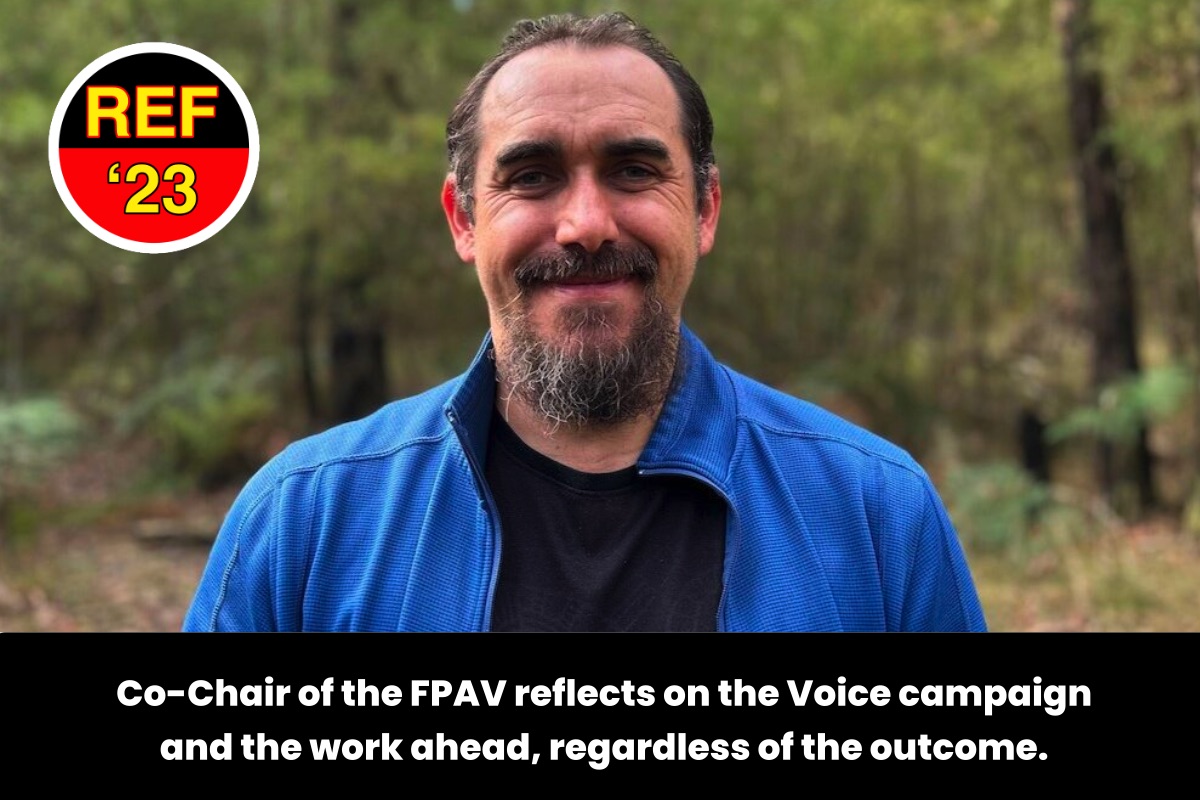
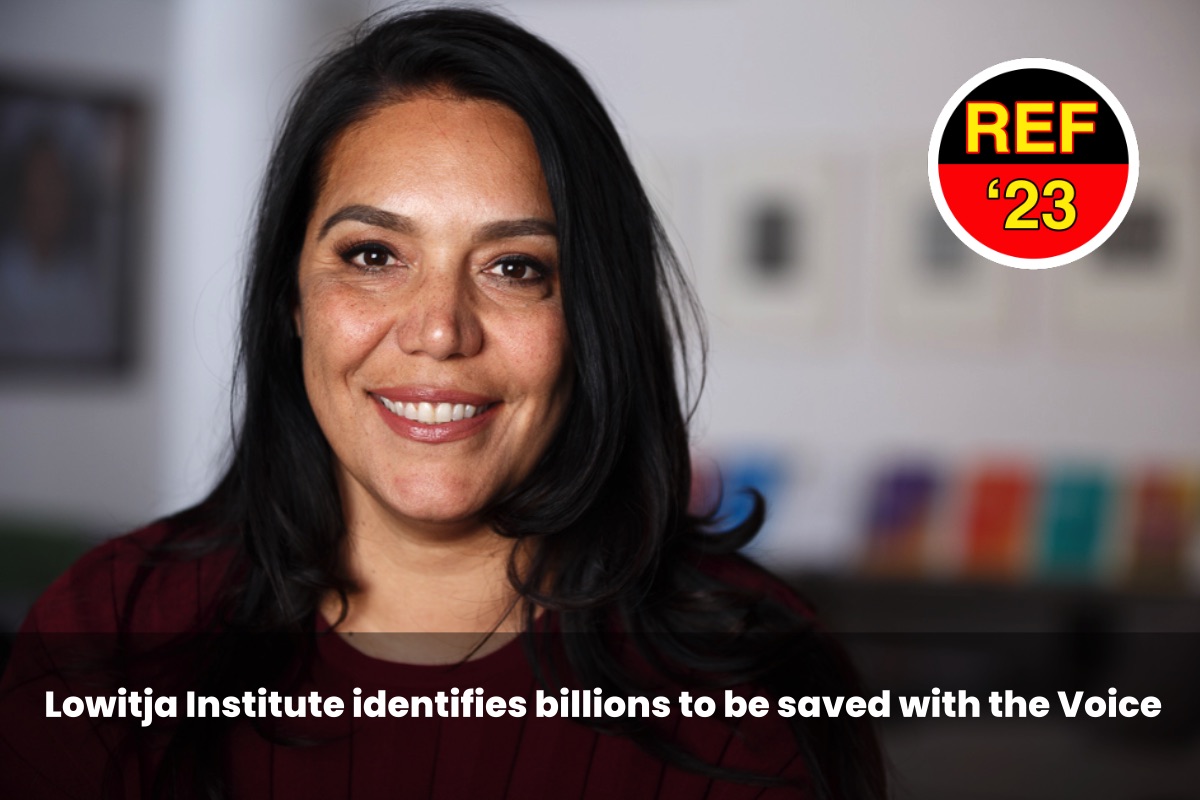
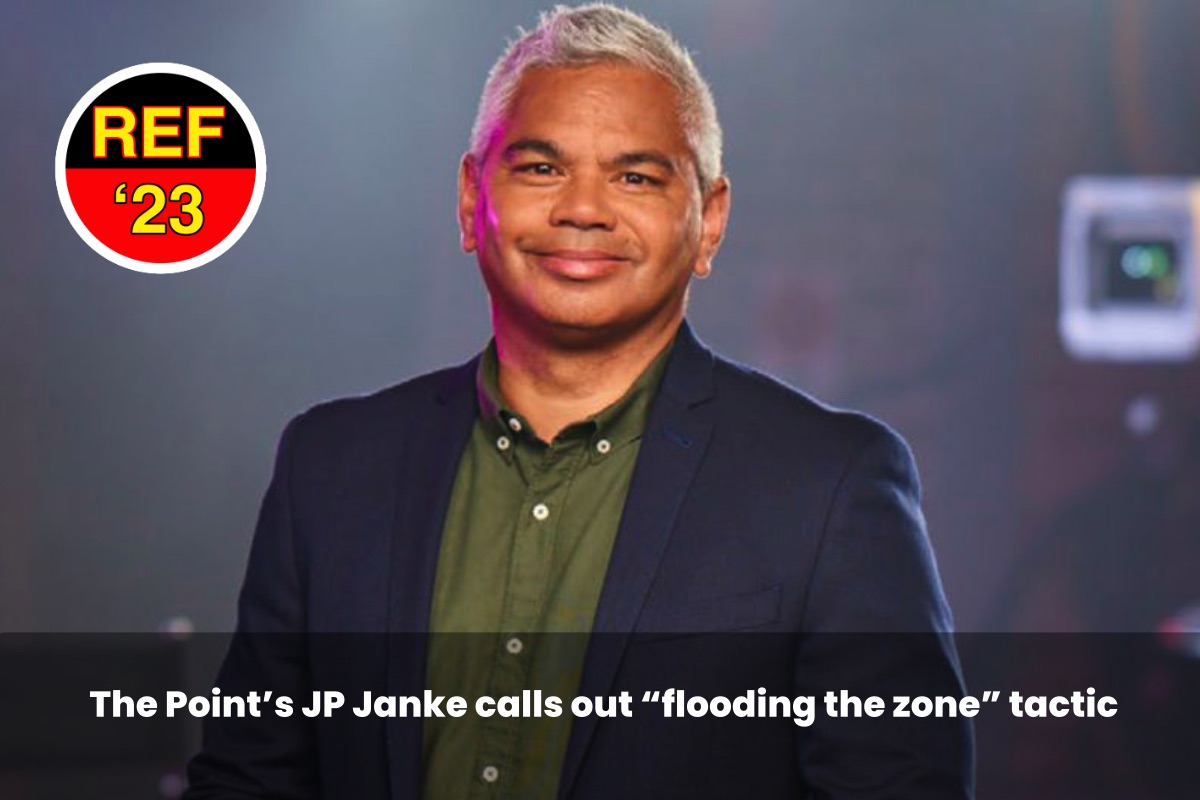
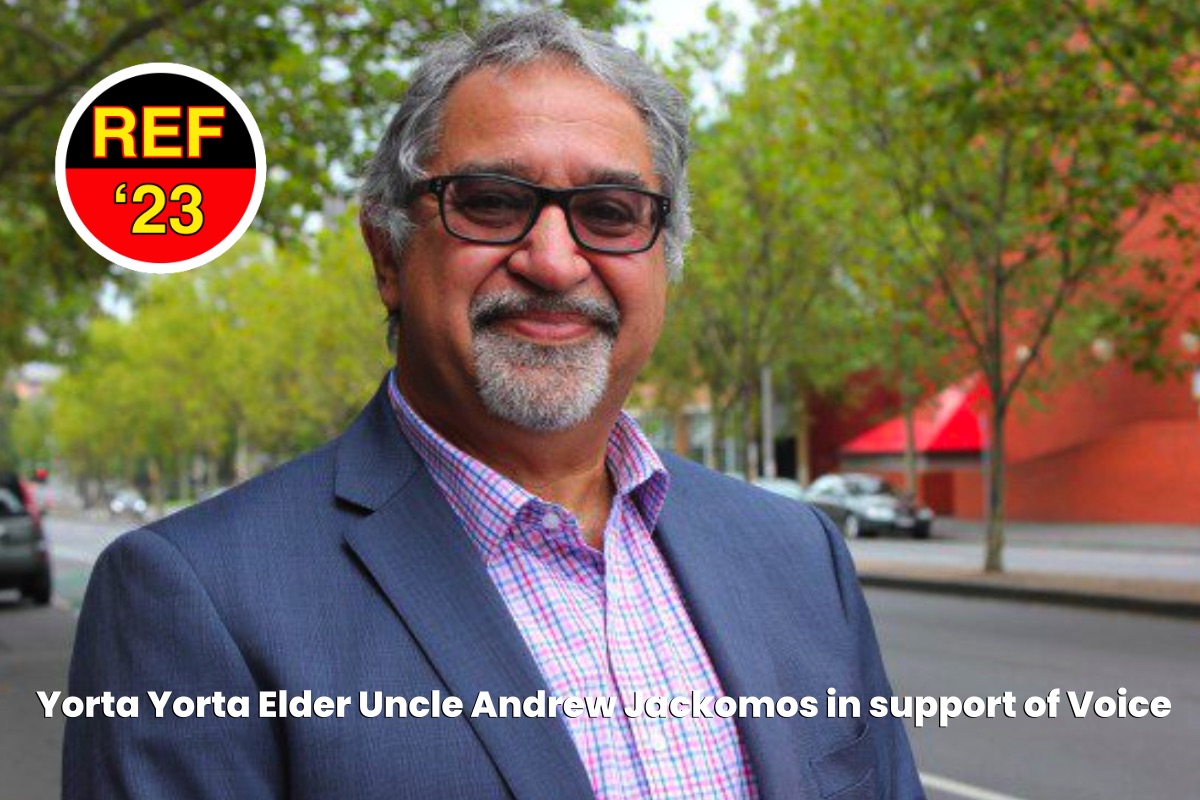
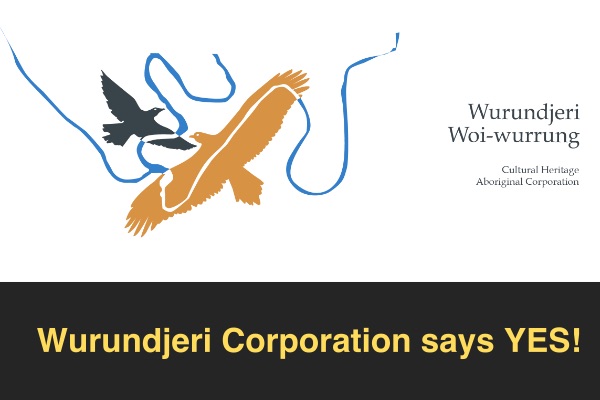

0 Comments